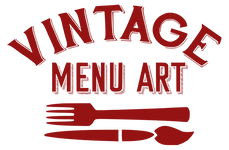
A B & W Club (The Owl) Mexicali 1920s
Free Shipping In The US
In 1913, a Californian entrepreneur called Frank “Booze” Beyer partnered with two other businessmen Marvin Allen and Carl Withington to form the ABW Syndicate and establish saloons and brothels in Bakersfield, California, as well as in Mexicali and Tijuana, Mexico. Some of these establishments included the Tivoli Bar, the Foreign Club, and the Monte Carlo casino.
The A.B. and W. Club was first opened as the Owl Café and Theatre (The Owl) in Mexicali in 1913. The Owl was operated as a bar, casino, and brothel.
In 1916, it moved from its original location at Ave Porfirio Díaz to Mexicali’s Chinatown district where it featured vaudeville acts, silent movies, and jazz performances.
By this time, California’s Amendment 47 had drastically reduced the number of saloons allowed to operate and 19 US states had already adopted prohibition laws, with Seattle becoming the country’s largest ‘dry city.’
Establishments like the Owl, therefore, were popular destinations for Californians who would make the drive across the border to let their hair down and drink alcohol freely.
The Owl claimed to have the ‘longest bar in the world.’ On the interior of this menu there is a black and white photograph of patrons at the large, circular bar. Looks like it was standing room only.
There were pints and quarts of imported French wines and champagnes and shots of Atherton Whiskey, a pre-prohibition brand of bourbon that was first bottled and marketed in 1867. The mention of pre-war American whiskey refers to alcohol that had been distilled but not bottled before WWI. (1914 to 1918)
California finally voted to ratify the prohibition of alcohol in 1919, presumably making locations like The Owl even more popular even if it was very pricey for the time.
The Owl burned down in 1920 and was rebuilt before burning down a second time in 1922. After being rebuilt a second time, the club was renamed to the A.B. and W. Club in 1924.
Prohibition ended in December 1933 when states were allowed to set their own laws for the control of alcohol.
Each order includes a print of the interior menu.
All printed in USA.



